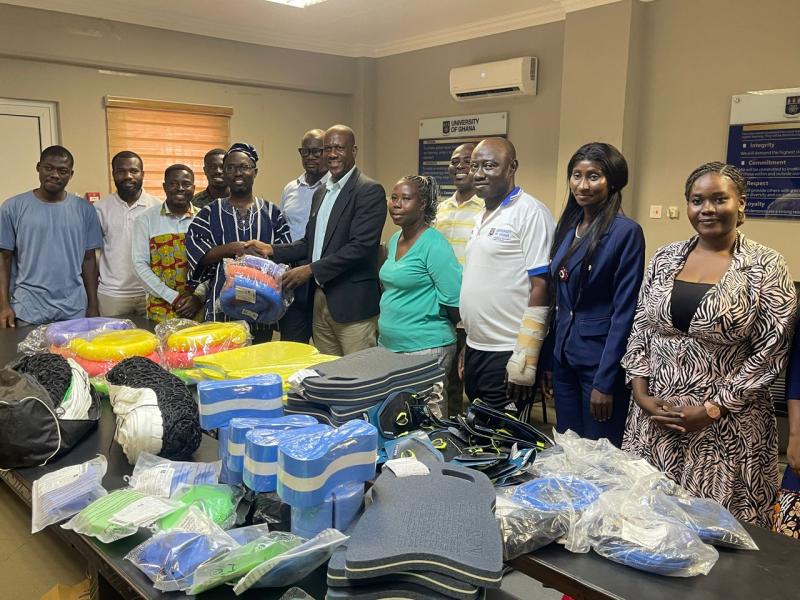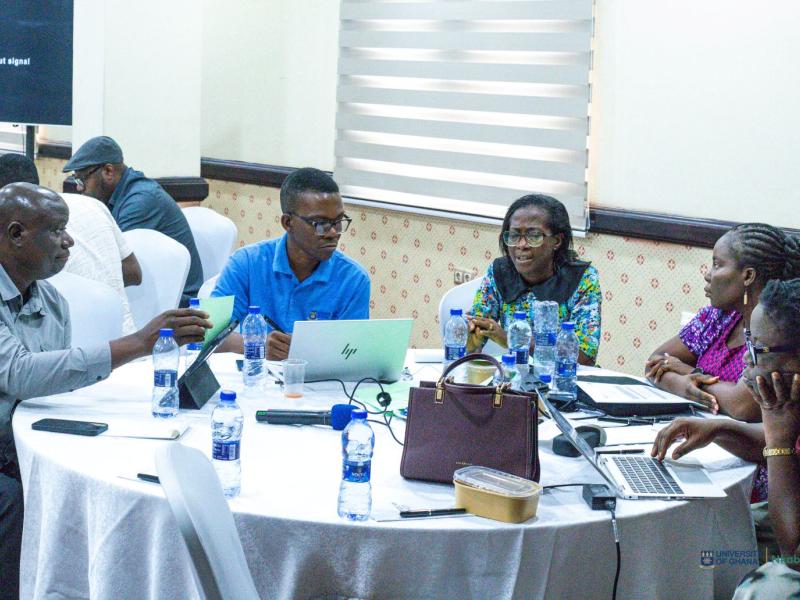UG Nkabom hosts seminar on Global Diet Quality
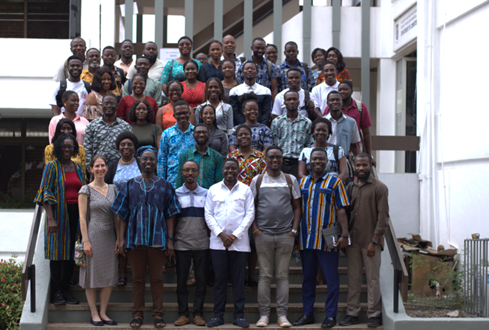
Convened on Friday, July 11, 2025, under the auspices of the Education Pillar, the session featured Dr. Anna Herforth, an internationally recognized authority in diet quality and food systems. Her profound insights offered a strategic blueprint for addressing critical public health and food system challenges, particularly within low-resource environments.
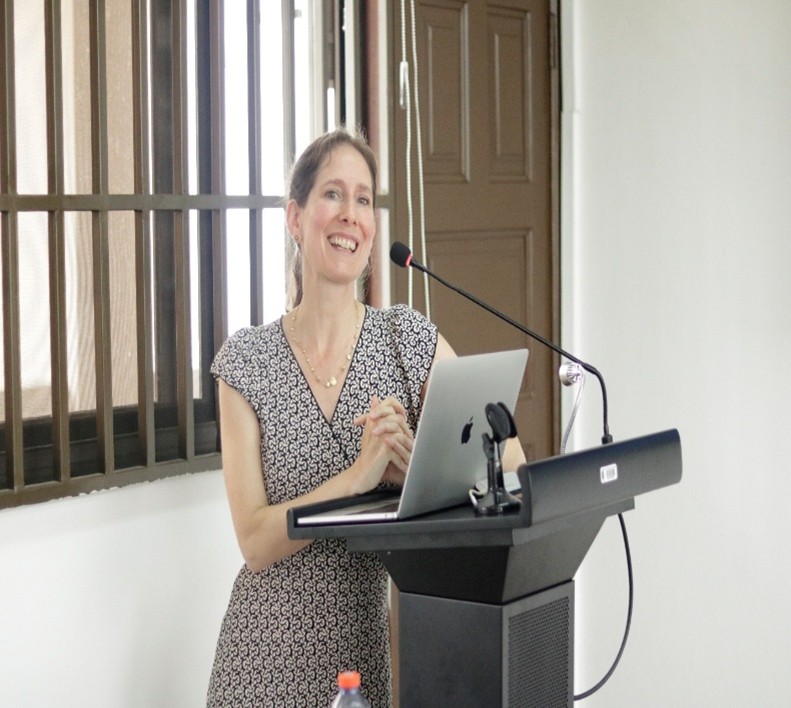
Deciphering the Global Landscape of Diet Quality
Dr. Herforth’s compelling presentation commenced by highlighting a momentous advancement in global health: the integration of a global diet quality indicator into the Sustainable Development Goals (SDGs). This landmark inclusion signifies the inaugural instance of dietary patterns being systematically tracked on such an expansive scale across nations, underscoring a collective global commitment to comprehending and improving human dietary habits.
A pivotal segment of her discourse centered on the Minimum Dietary Diversity for Women (MDD-W). Dr. Herforth elucidated this remarkably straightforward, yet potent, indicator, which gauges whether women consume a minimum of five out of ten essential food groups, serving as a reliable proxy for micronutrient adequacy.
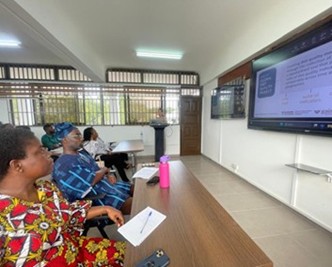
Dietary Assessment: The Diet Quality Questionnaire (DQQ)
Acknowledging Pioneering the inherent complexities and costs associated with traditional dietary surveys, Dr. Herforth unveiled the Diet Quality Questionnaire (DQQ), an innovative and highly adaptable instrument engineered for both efficiency and broad utility. Envision a survey capable of completion in merely five minutes, yet customizable to the distinct food cultures of over 140 countries. The DQQ’s concise 29 yes/no questions render it exceptionally suitable for national surveys, providing a cost-effective and pragmatic means to collect vital dietary data.
Furthermore, she delineated newly WHO-endorsed diet quality indicators. These focus equally on the consumption of protective foods (such as fruits, vegetables, and whole grains) and the intake of unhealthy consumables (including sugary beverages, processed meats, and salty snacks). These indicators are indispensable for evaluating the risk and enabling the prevention of non-communicable diseases (NCDs), which are increasingly prevalent globally.
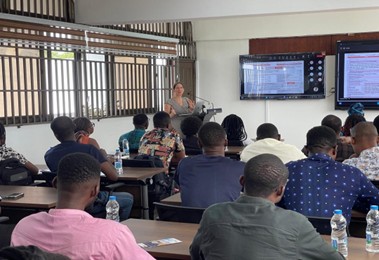
Ghana's Dietary Profile: Revelations and Opportunities
On Ghana,Dr. Herforth disclosed that only 44% of Ghanaian women attain the minimum dietary diversity threshold, and a mere 20% consume all food groups recommended in national dietary guidelines.
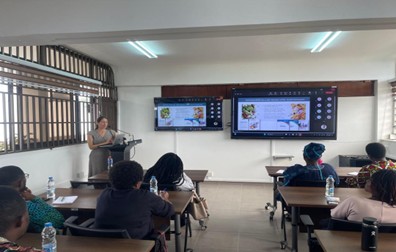
While the consumption of unhealthy foods presently remains comparatively low at 18%, a disquieting upward trend in sugary drink intake was observed. On a more encouraging note, 35% of participants reported consuming at least one fruit, one vegetable, and one whole grain—a performance superior to many West African counterparts. Dr. Herforth underscored a critical insight: economic growth alone does not guarantee an amelioration of diet quality. This observation accentuates the urgent imperative for deliberate and meticulously crafted food policies to instigate positive transformative change. The DQQ's methodological stringency was also emphasized, featuring extensive cognitive testing and a standardized adaptation process to ensure its precision and cultural resonance. Its cross-country validation (including in Ghana), demonstrating over 90% agreement with more intricate reference methodologies, unequivocally attests to its reliability.
Charting the Course for Future Endeavors
The seminar emphasized the vital necessity for robust national nutrition monitoring systems and the development of tools that are feasible, scalable, and context-specific. It also highlighted the indispensable role of both academia and government in seamlessly integrating dietary indicators into health, agriculture, and education policies.
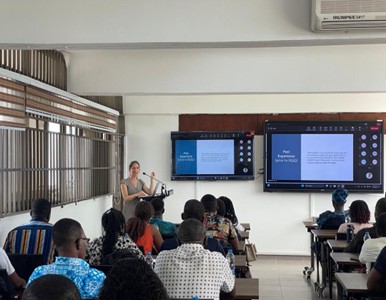
The event fostered substantial engagement, drawing over 65 in-person and online participants (35 females, 30 males) from a wide range of institutions. These included the Department of Crop Science, West Africa Centre for Crop Improvement (WACCI), Department of Food and Nutrition, Department of Dietetics, Cocoa Research Institute (COCOBOD), Ghana Health Service – Nutrition Directorate, Regional Institute for Population Studies (RIPS), and the Department of Agricultural Economics and Agribusiness. Notably, over 70% of attendees were under 35, reflecting Nkabom’s commitment to youth engagement in public health and food systems research. A vibrant question-and-answer session ensued, stimulating rich discussions on the localized application of the DQQ and exploring promising avenues for future collaborative ventures.

Conclusion
Dr. Herforth’s seminar transcended a mere informative session; it served as an inspirational call to action. Her groundbreaking work furnishes practical instruments and conceptual frameworks for advancing national nutrition data systems, thereby ultimately promoting public health, informing judicious food policies, and addressing some of the most pressing global nutrition challenges of our contemporary era.

